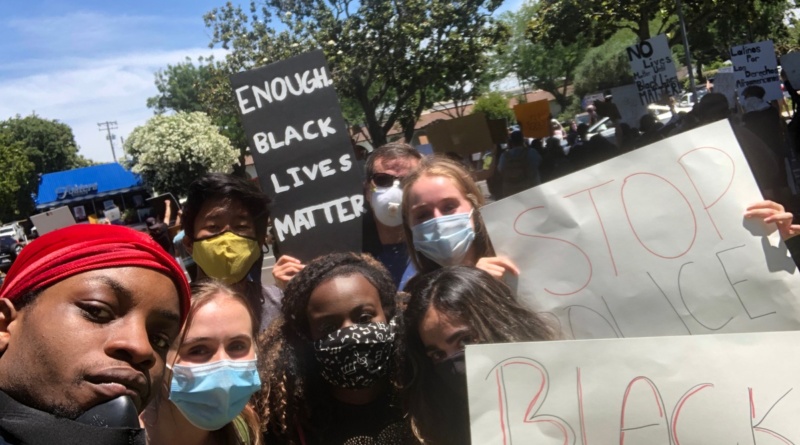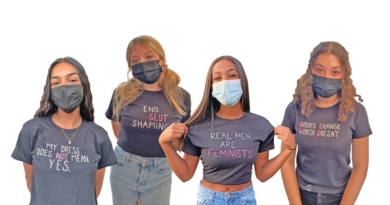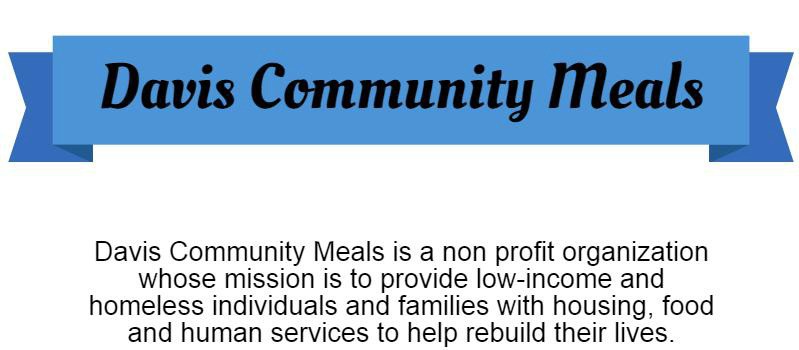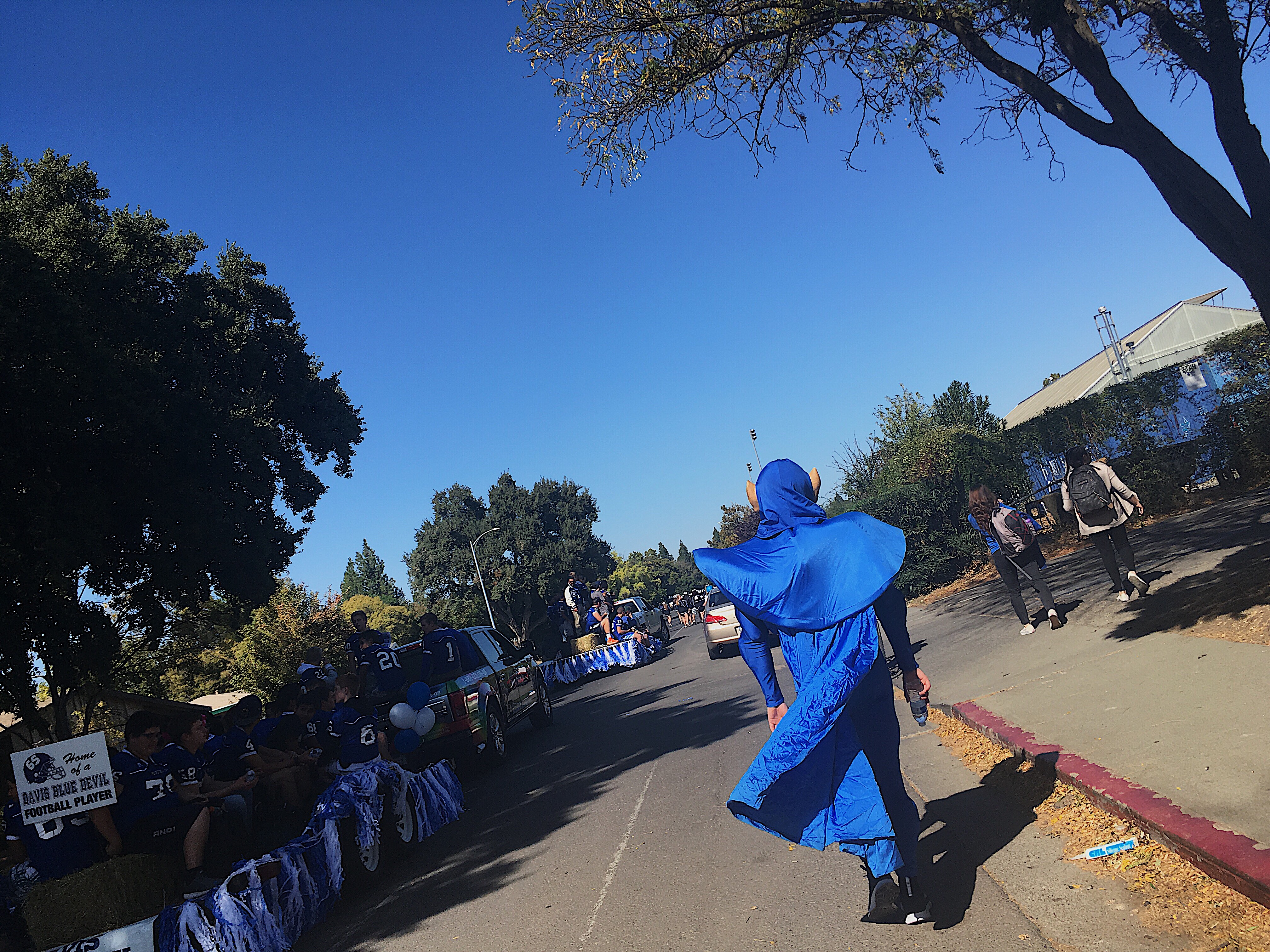Students, teachers combat racial injustice
CAPTION: Oluwadara Ogundiwin, third from the left on the bottom row, attended a protest in Vacaville last June calling justice for George Floyd.
By Stella Maze,
BlueDevilHUB.com Staff–
The socially distant crowd gazes attentively as senior Oluwadara Ogundiwin walks to the stage, microphone in one hand, pink clipboard in the other.
Ogundiwin, co-president of Davis High’s Black Student Union, is speaking at the Reimagining Public Safety Community Teach-in in Central Park to a crowd of all ages. She explains the school-to-prison pipeline: a phrase describing how systemic inequities lead many students from oppressed groups to leave school and enter immediately into the prison system.
Ogundiwin, along with other DHS students and Davis residents, are participating in different forms of activism in order to fight the racial injustice they are seeing in the United States today.
Ogundiwin stays active in fighting racial injustice because she wants to see new alternatives to policing that work for everyone, diversity in leadership positions and heightened awareness of the experiences of racial groups other than their own. All three of these things are lacking in the country today, Ogundiwin believes.
“I think everyone’s kind of fed up with what’s been going on,” Ogundiwin said.
This drive to fight for racial justice is widespread, yet everyone’s form of activism is different.
The Pig Brigade, an activist group consisting of UC Davis students and staff, uses performing arts to explore and rethink the current system of policing in Davis.
Brigade members Hannah Adamy and Tory Brykalski spoke about their project at the public safety teach-in. They highlighted the problems they saw within the police system by performing dressed as pigs in order to address the way police have been called “pigs.”
“We wanted to think through what it meant to be a pig,” said Adamy. “And what it meant to be a cop,” said Brykalski.
Around 100 Davis Joint Unified School District teachers have joined an anti-racism book club.
“The teachers are wanting to do the work on a personal level,” said Troy Allen, Director of Secondary Education and Leadership for DJUSD.
The teachers study and analyze texts about systemic racism and antiracism. They are invested in learning how they can best help their students.
Not only are community members finding ways to create change, but they also understand the importance of consistency.
“Fighting for racial justice is not temporary, it’s a lifestyle,” Ogundiwin said.
However, constantly staying active is not always easy and breaks are necessary. Ogundiwin said she feels burnt out from time to time. She can feel her “soul kind of being weighed down” sometimes, and that is when she knows she needs to turn her phone off.
Ogundiwin is also concerned about young children of color who are constantly seeing and hearing about events of brutalization against other people of color and becoming desensitized to this kind of violence.
However, despite this obstacle, she is committed to the lifelong fight against racism.
Focusing on the small victories helps her hold onto hope for the future. “Our biggest enemy is hopelessness,” Ogundiwin said.
She has seen people of different races come together to have conversations and march in the streets as one. Not only was she struck by this unity, but so was her father. As they were watching a video of a Black Lives Matter protest, he commented on how there were Black and non-Black fists in the air together.
“That’s like monumental in itself,” Ogundiwin said.




